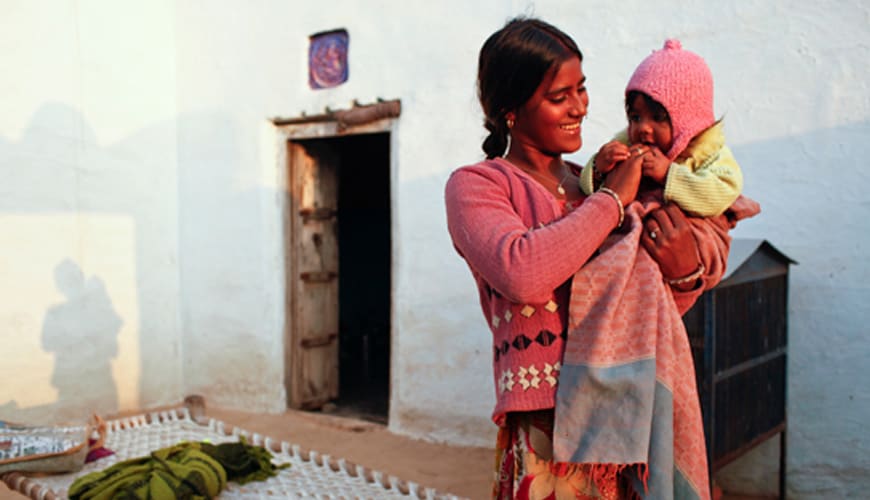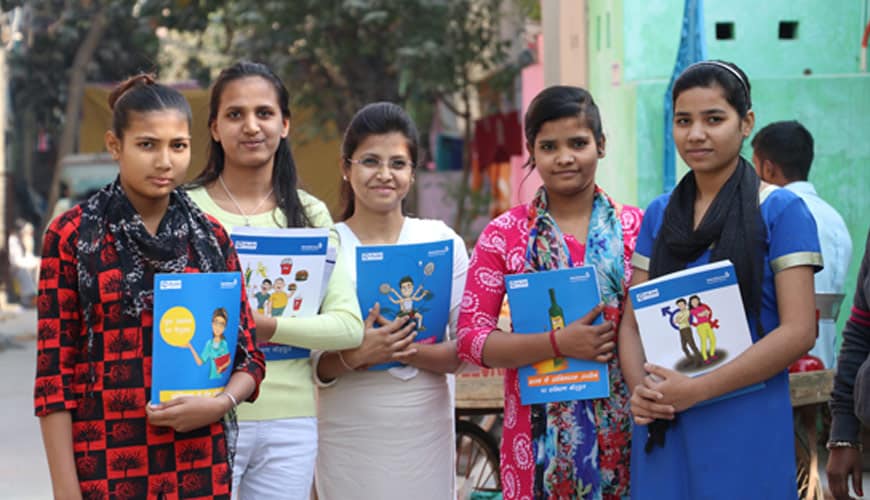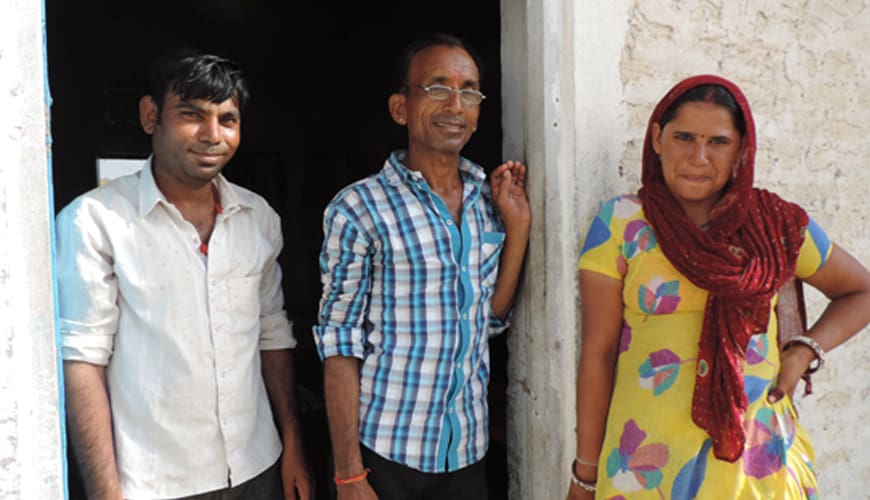Let Girls Be Born (since 2005), the flagship campaign under BIAAG has

Sex-selective elimination of female foetuses, often through the misuse of the very technology that was developed for the care of an unborn child, continues to be a problem.
Let Girls Be Born (LGBB) is an advocacy project through which Plan India, with the support of Plan International – Netherlands, works to end discrimination and fight female foeticide through effective implementation of the law. The project is currently active in Jharkhand, Rajasthan and Uttar Pradesh.
Innovations
- Geo-tagged mapping of testing centres on a portal that strengthens Pre-Conception and Prenatal Diagnostic Techniques (PC & PNDT) cells through online tracking and compliance
- Changes in Governance: Delegating Chief Medical Health Officer’s (CMHO) powers to the District Magistrate (DM) for effective enforcement of PC & PNDT Act and to prevent any probable collusion with the offenders
Plan India undertakes capacity building of Accredited Social Health Activists (ASHAs) who are trained at regional and block levels and then cascade their learning to peers and communities. These frontline workers (FLWs) coordinate, collaborate and consolidate efforts across the state to record and analyse data, identify and address gaps through grassroots level facilitation.
Plan also works with the state governments to showcase learning from other successful initiatives across India. Piloted in Rajasthan, the Mukhbir Yojana or Informant Scheme incentivises sharing of information on centres providing sex determination services or operating illegally. It is now also active in Uttar Pradesh and Jharkhand. LGBB also works with volunteers empanelled by the State Legal Services Authority from the National Legal Awareness Programme and trained paralegals to disseminate information through Lok Adalats. The programme works with the communities on behaviour change and helps create a dialogue on roles for girls in the socio-economic context.
Active engagement with Panchayati Raj Institutions (PRIs) has led to the display of ‘Guddi-Gudda’ boards within communities that present gender-segregated data. Effective tools for behaviour change, the boards drive ownership and spark reflection within communities over the issue of declining sex ratio. Peer educators and youth clubs have emerged as the backbone for community mobilisation and facilitation of on-ground actions. With work making rapid progress at both advocacy and grassroots levels, Plan is well on its way to ensure equality for girls’ right from their inception.
Highlights
- Support to develop and manage the PC&PNDT portal in Jharkhand. Called ‘Garima Jharkhand’ the portal is being used to effectively monitor 938 registered ultrasound centres and genetic laboratories such as IVF centres.
- 1,632 girls enrolled for government’s flagship Sukanya Samiridhi Yojna with a total deposit of Rs 63,74,200 in the name of the girls by the parents.
- 848 girls enrolled for state-specific girl welfare schemes such as Mukhya Mantri Sukanya Yojna in Jharkhand, Rajshree Yojana in Rajasthan, and Kanya Sumangla Yojna in Uttar Pradesh.
- 99,650 community members reached with messaging on girls’ rights.
- 3000 students benefitted through the strengthening of Child Clubs and their libraries on gender equality in 15 schools of Jaipur.
Young Health Programme (YHP) aims to make a meaningful difference to the

A whopping 41 million or 71% of deaths occur due to non-communicable diseases (NCDs) globally. In India, NCDs account for 63% of deaths. Young Health Programme (YHP) is one of the few initiatives that focus on the burgeoning problem of early deaths due to chronic ailments such as cardiovascular diseases, cancers, respiratory diseases and diabetes. Besides NCDs, YHP also works to raise awareness about adolescent health issues, such as sexual and reproductive health and rights. YHP sensitises youth through sessions at schools and youth-led Health Information Centres (HICs). YHP is one of the first projects to have commissioned community scorecard exercises to rate government health facilities and establish monthly inter-generational dialogues.
HICs are a critical element in grooming young people for taking the lead in spreading knowledge and awareness within their communities A recent win for YHP has been extending their interventions at schools for 226 teachers and 4,500 students. A successful signature campaign led by children lobbied with the municipal bodies for the development of an open gym in a community park. The YHP team sensitised 288 AWWs, ASHAs, and Auxiliary Nurse Midwives (ANMs) on how to limit risk behaviours among youth and promote adolescent-friendly health services at primary health centres.
The team also routinely organises nutrition awareness camps at Anganwadis and HICs to sensitise young people and encourage families to adopt healthy eating habits keeping various variables into consideration such as cultural acceptability, seasonality and low cost. In addition, sports sessions are organised within the communities to combat inactive lifestyles. The project, due to end in 2020, has achieved sustainability by training PEs to take the helm within their communities. Enrolment and active leadership in HICs and youth clubs where they plan and facilitate sessions to motivate the PEs. These champions of change have also been trained in street theatre over four years, thus creating a means of livelihood for their theatre society and adding to the sustainability of YHP.
Highlights
- 52,597 young people (31,759 girls) and 17,646 community members reached with information on promoting healthy behaviour.
- 7,403 young people (3,697 girls) registered across Health Information Centres
- 3 government-run health centres transformed into adolescent-friendly health centres
- 89 health workers sensitised on Rashtriya Kishori Swasthya Karyakram (RKSK)
In February 2016, Plan India, in partnership with i2india, initiated a study to assess

In February 2016, Plan India, in partnership with i2india, initiated a study to assess the feasibility for creating digital platforms that provides education, healthcare and vocational skills development services in rural areas. The study concluded that such a platform, combined with a strategy that taps existing entrepreneurial and investment potential at the village level, could help achieve massive reach and scale up of Plan India’s goals.
The DELPHI (Digital Entrepreneur Led Platform for Higher Education) project is designed as an Aggregator Model where Plan India works as an aggregator of development services provided by Village Level Entrepreneur (VLEs) in programme areas who can emerge as the new front line for providing impactful services in rural communities. The project aims to identify, nurture and support at least 10,000 VLEs.







